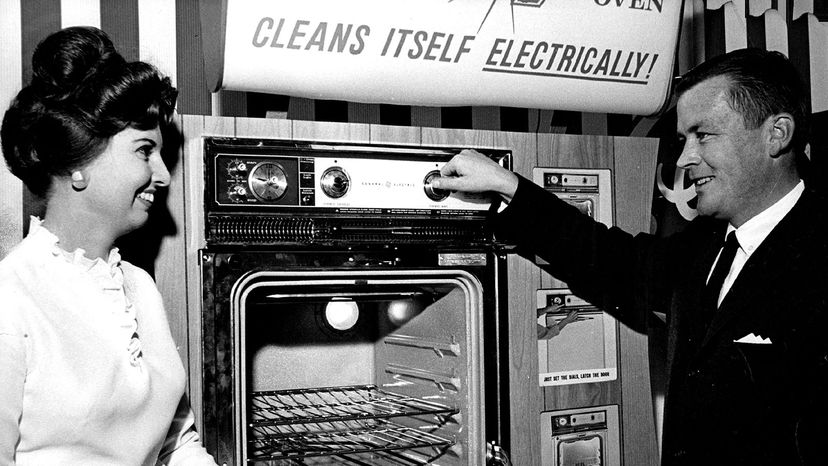Types of Self-cleaning Ovens

The term "self-cleaning oven" usually refers to the pyrolytic cleaning method. This type of oven has a smooth enamel coating on the interior walls that makes it easier to remove dirt after it's reduced to ash by high heat.
Pyrolytic ovens have a timed cleaning cycle, usually ranging from two to four hours. During the cycle, the oven heats to between 900 and 1,000 degrees Fahrenheit (482 to 537.8 degrees Celsius) [source: Baldwin et al.]. The heat reduces the baked-on crust and grease to a powder that's easy to remove. Since the process creates smoke and fumes, some pyrolytic self-cleaning ovens use a catalytic converter in the exhaust vent to eliminate emissions [source: Consumer Reports].
Advertisement
You'll also find ovens that feature steam cleaning. These are lined with a proprietary enamel coating. When activated by steam and low heat, the walls of the oven release dirt. All you have to do is wipe it away. Steam cleaning is quicker than pyrolytic cleaning -- it usually takes less than an hour. The ovens don't need high temperatures and don't give off fumes. But they don't clean as thoroughly as pyrolytic ovens, especially when dealing with baked-on goo. Some ovens feature both pyrolytic and steam cleaning options. You can choose which method you prefer depending on how dirty the oven is.
A different technology known as continuous cleaning was used in older ovens, although it's less popular today. The idea is to spread out the grease spatter and stains over a wide surface. So the continuous cleaning oven has a rough, porous enamel finish on its interior walls. That enamel contains catalytic substances like metal oxides that help the deposits turn to ash at normal baking temperatures [source: Baldwin et al.].
Continuous cleaning ovens are most effective for light splatters, but they don't handle larger spills very well. If you have one, you should take precautions, such as putting a layer of foil on the bottom of the oven when baking anything that might spill. And wipe up any substantial grime as soon as you can.
Using a self-cleaning oven is as easy as pushing a button, but there are a few things to keep in mind. Read on to find out what they are.